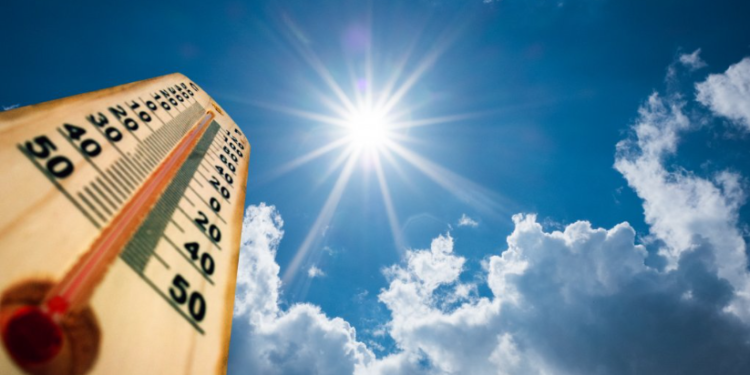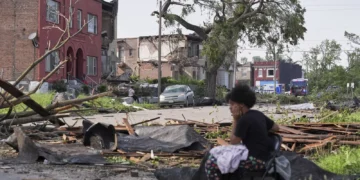Image Source: Virginia Mercury
July 10, 2024 Story by: Editor
RICHMOND – Michael, a resident of Richmond’s Southside, was waiting for a bus on Forest Hill Avenue just before 2 p.m. on Tuesday, as the car thermometer showed 94 degrees. He had no bus shelter to provide relief from the heat, only a narrow sign offering minimal shade.
“There’s very little shade right here,” Michael said, suggesting that more cooling centers could help mitigate heat stress in the city. “They don’t have cooling stations everywhere…it’s hot everywhere.”
A recent report in the scientific journal GeoHealth detailed the number of heat-related health emergencies and the unequal impact of urban heat exposure in Richmond. Researchers found that Black residents have disproportionately experienced heat-related illnesses during warmer months, and their communities have historically seen less investment to help them stay cool.
“While human-caused climate change is driving average global temperatures to rise, some communities and neighborhoods in Richmond, Virginia experience hotter temperatures than others,” the report stated, attributing this to a pattern of government disinvestment in Black and low-income neighborhoods. “Hotter, less resourced neighborhoods experience more heat-related health emergencies like heat stroke and heat exhaustion.”
The research, using Emergency Medical Services data reported to the Virginia Department of Health, identified 492 heat-related incidents from May to September between 2016 and 2022. Of these, Black or African-American patients accounted for 306, or 62%, despite making up only 39.9% of the city’s population. White patients, who comprise 42% of the population, accounted for 32.9% of the incidents.
The report also mapped Richmond’s cooling centers, including nine libraries and three centers that open when temperatures exceed 95 degrees. It found that 53.9% of the heat-related illnesses occurred within a 0.8-mile walk of these centers. Opening the city’s 24 community centers as additional cooling stations would bring another 17% of the heat-related illnesses within the same walking radius.
“Spending just a few hours at a cooling center can help prevent heat-related illnesses, but a lot of Richmonders might not know these cooling centers exist or they might not have a safe way to get there,” said Peter Braun, a built environment policy analyst with the Richmond and Henrico Health District. “In some neighborhoods, if you have to walk down a street without sidewalks or shade from street trees or if you have to wait at a bus stop without a shelter, you’re going to be exposed to extreme heat.”
| A map displaying the number of heat emergencies alongside the locations of cooling and community centers, based on research by Peter Braun and Jer. |
Jeremy Hoffman, another researcher and director of climate justice and impact at Groundwork USA, emphasized the importance of access to cooling options, saying, “It is a matter of life and death.”
The research reviewed the Greater Richmond Transit Company’s 1,618 bus stops, noting that only 5% have shaded shelters. Nearly 200 heat-related incidents occurred within 100 meters of a bus stop. Hoffman highlighted that the bus company is offering zero-fare service on their air-conditioned buses.
These findings build on Hoffman’s 2020 study on the impact of past housing policies on urban heat islands. Southside Richmond, an area with little historical investment in sidewalks, has only one cooling center on Hull Street. Last year, Hoffman published research showing that cooling centers across the state were sparsely located.
Protections for outdoor workers have also garnered attention this summer. The Occupational Safety and Health Administration (OSHA) recently released draft rules requiring companies to schedule breaks for outdoor workers. The Natural Resources Defense Council (NRDC), an environmental nonprofit, praised the rules as a “crucial step forward.”
“Workers in our nation should not be denied something as simple as a water break or a few minutes to regroup in the shade,” said Juanita Constible, a senior advocate in NRDC’s environmental health program. “That’s just basic human decency. It shouldn’t be controversial.” Source: Virginia Mercury

















